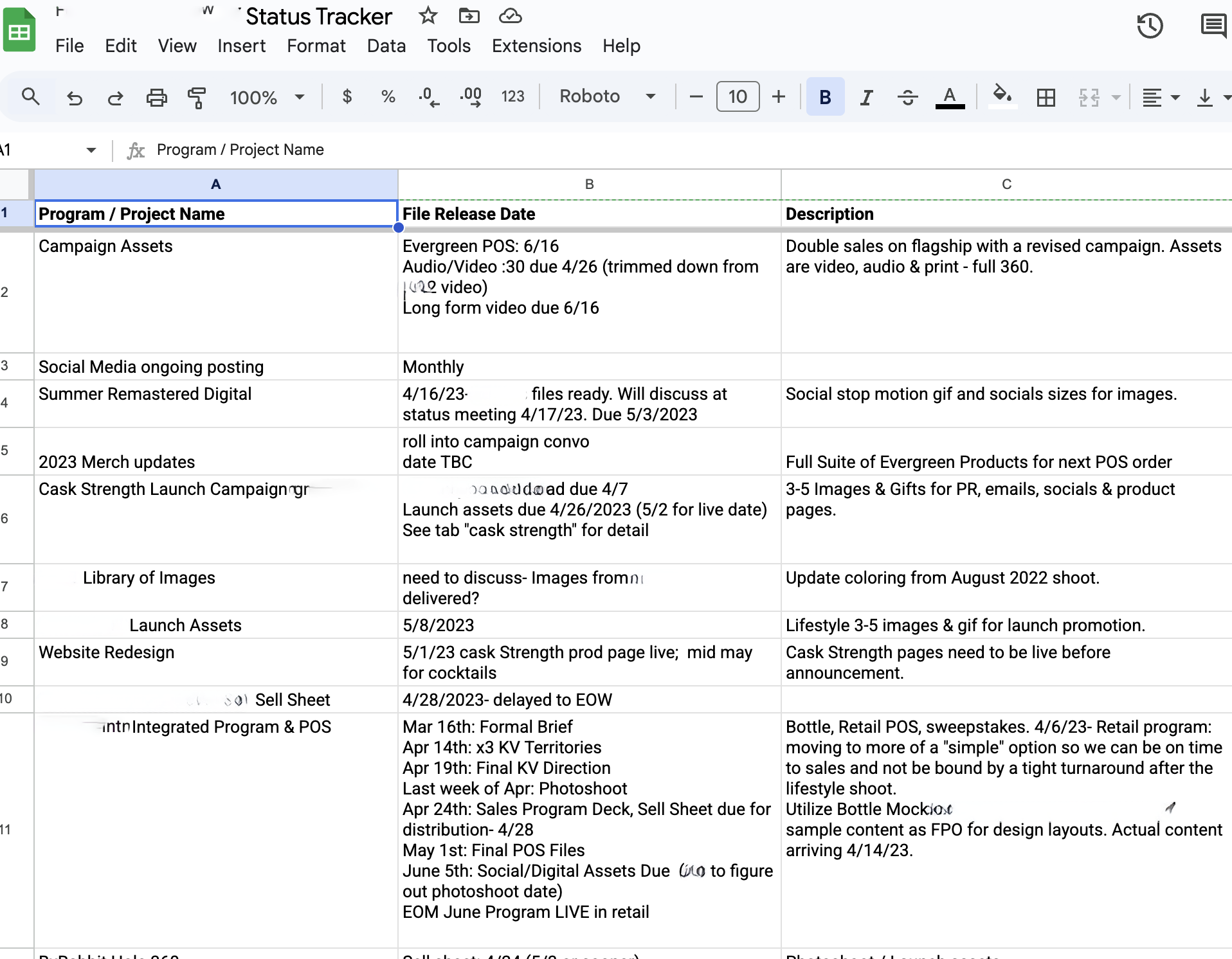Operational Excellence
Overview
At a renowned whiskey brand, the marketing team was buried in chaos. Project briefs were incomplete, deadlines were constantly missed, and budgets were spiraling out of control. The incredibly talented creative team was stuck putting out fires instead of focusing on their strengths. Vendors were off track, and unpredictable workloads led to endless rework. A complete operational overhaul was needed—rebuilding project workflows from scratch, all within just three months. The focus? Ensuring every team member had clear direction, resources were properly managed, and projects moved smoothly from kickoff to delivery.
My Approach
Transforming the team required a strategic, hands-on approach:
The outdated, manual Excel tracking system was replaced with Airtable. A streamlined, form-based input system was introduced, capturing project details and updates automatically, reducing errors, and saving valuable time.
A stronger connection was established between marketing, design/creative, and product teams. Instead of long, unfocused meetings, quick daily stand-ups were introduced to flag issues before they became problems.
Agile project management techniques were implemented, including a T-shirt sizing system (XS to XL) to categorize project complexity. This provided marketing and creative teams with a simple, intuitive way to understand project scope from the start.
A dynamic scheduling system was implemented in Airtable, leveraging AI-generated formulas to automate milestone calculations. This enabled teams to adapt to shifting priorities and resource allocations in real time, facilitating proactive milestone tracking and seamless timeline adjustments.
Vendor relationships were optimized through renegotiated contracts and aligned schedules, eliminating surprise delays and budget overruns.
Results
We achieved a 99% on-time completion rate for projects and cut weekly status meeting times in half. The T-shirt sizing system transformed how projects were assessed and planned, while the dynamic scheduling system ensured adaptability without derailing timelines. Together, these innovations led to an 85% boost in team morale, fewer delays, and consistently higher-quality work.
Key Takeaways
Process Transformation: Breaking existing systems down and rebuilding from scratch led to more efficient, scalable workflows that actually worked for the teams.
Structural Design: Built frameworks that freed teams to stop worrying about logistics and focus on what they do best.
Change Management: Successfully guided teams through major operational shifts by building trust and demonstrating clear value in new processes.
Vendor Management: Strong relationships and clear communication transformed project delivery and budget management.
Solution Evolution: That 1% of missed deadlines became learning opportunities, turning challenges into better solutions for future projects.

